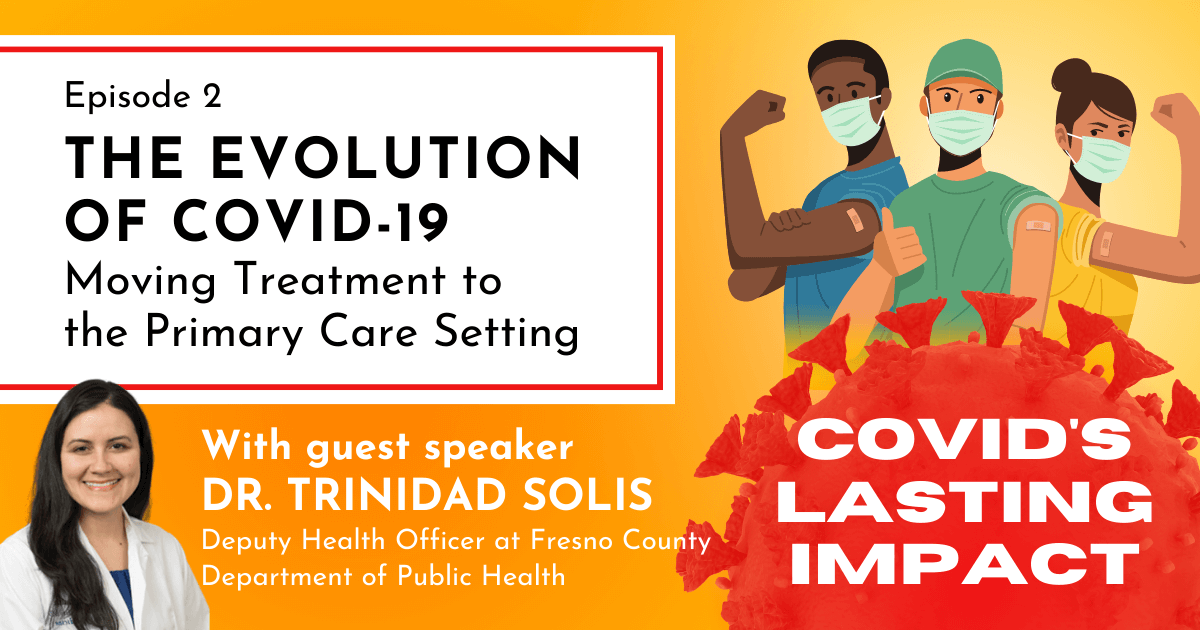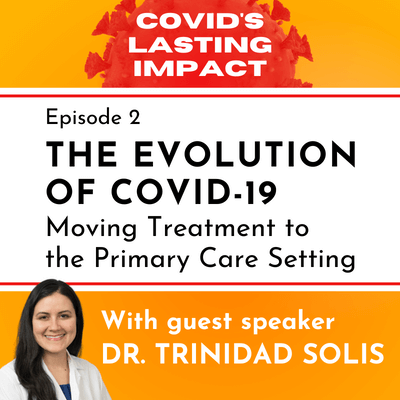Dr. Trinidad Solis: Mobile Services, Telehealth, and Resources for COVID Can Prepare a Community for the Next Health Crisis

The COVID-19 pandemic provided many lessons to clinicians that they can continue to utilize beyond the pandemic. These lessons need to be studied and discussed in order to properly prepare for future public health emergencies. We’ve created our new podcast series: The Lasting Impact of COVID-19 to discuss these strategies and lessons learned. This series aims to help primary care teams close knowledge gaps for continually changing care practices and help them provide the best care for their patients throughout the end of the pandemic and for future emergencies.
Migrant Clinicians Network’s Founding Medical Director Ed Zuroweste, MD is joined by co-host Elena Rios, MD, MSPH, MACP for the second episode of the Lasting Impact of COVID-19. Dr. Rios is the President and CEO of the National Hispanic Medical Association and President of the National Hispanic Health Foundation. The duo joined Trinidad Solis, MD, MPH, Deputy Health Officer at the Fresno County Department of Public Health, to discuss strategies to protect and treat Latine farmworker populations against emerging health threats.
Dr. Solis and her team did groundbreaking work in rural communities, directly bringing vaccines to agricultural workplaces using mobile clinics. “We were one of the first counties in the country to start doing that, where we brought the vaccines to where farmworkers were working,” Dr. Solis said. “Because of our efforts, we were able to administer over 35,000 doses of the COVID vaccine to farmworkers.”
Dr. Solis highlighted the importance of mobile health services to meet people where they are; telehealth services to bridge some of the critical gaps migrant workers face in getting care; and resources clinicians can use when advising migrant workers and other patients on treatments and making decisions around Paxlovid, drug-drug interactions, and its potential for helping high-risk patients. She emphasized the role local and state health departments can play in identifying and assessing the risk of various drug interactions with Paxlovid and encouraged clinicians to work with their local health departments when concerns arise.
Dr. Solis also focused on the work of community health workers to ensure language access in Spanish-speaking communities and in communities that speak a variety of indigenous languages. Dr. Solis continues to work on COVID-19 while preparing for future health crises, with a focus on those in her community who have overlapping barriers to health education and care access.
Listen to the entire episode with Drs. Solis, Rios, and Zuroweste, on Spotify, Apple Music, YouTube, or wherever you listen to podcasts. Access this episode’s notes, including links to highlighted resources, an associated webinar, and avenues to connect with the presenters, on our Podcasts page. This is the second episode of our 10-episode podcast miniseries, “COVID’s Lasting Impact: Caring for Immigrant, Migrant and Asylee Patients.” Be sure to subscribe to the podcast to be alerted to new episodes.
- Log in to post comments
